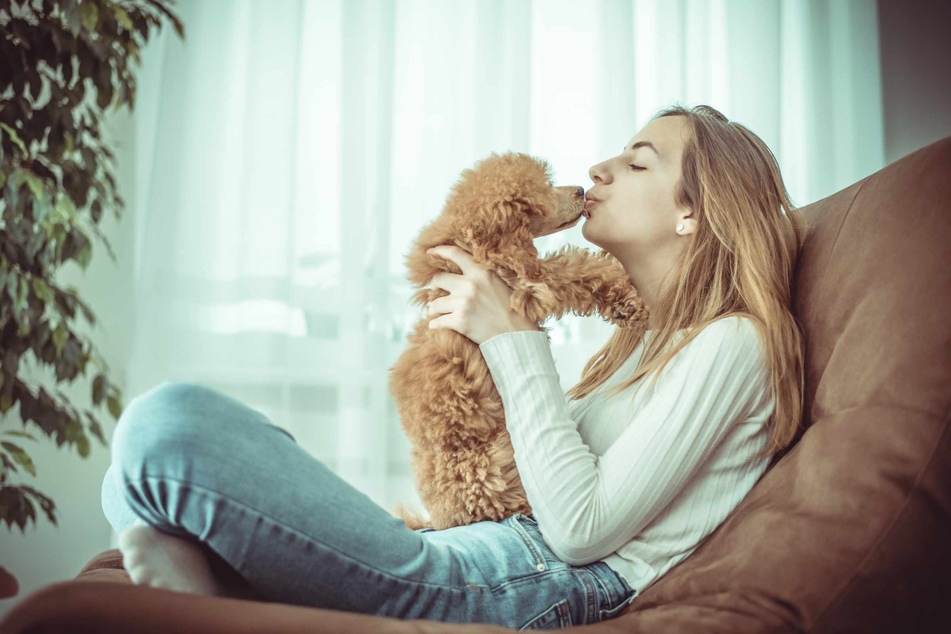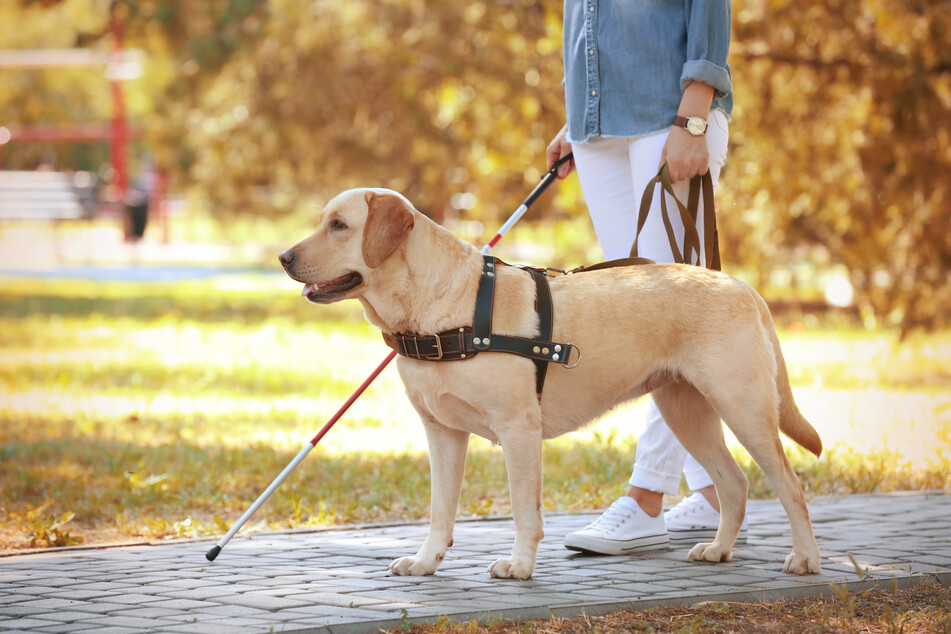Puppy study shows dogs are genetically wired to interact with humans!
Santa Rosa, California - A new study shows how puppies are born with social skills that enable them to communicate with humans, as opposed to having learned it from human interaction.

New research indicates that certain breeds of dogs are more disposed to wanting to interact with people, which would make them better service animals, according to Emily Bray, a postdoctoral research associate in the University of Arizona School of Anthropology in the College of Social and Behavioral Sciences.
In her study, published in the journal Current Biology, Bray outlines tested groups of pure-bred puppies that had not yet been socialized with humans.
Working with Canine Companions in Santa Rosa, California, which breeds and trains service dogs, Bray was able to run her study using dogs whose genetics were completely controlled for, ensuring that the behaviors the puppies exhibited were true across their breed.
The pups were given a series of tasks to see if they could figure out what the human wanted them to do, from choosing between one of two treat-filled cups to seeking help from a human to get into a hard-to-open treat box.
The researchers also watched to see how often the puppies would look at human faces when spoken to in "dog-directed speech" which is high-pitched, similar to baby talk, designed to get the dog's attention, and different than how humans speak with other humans.
Both cups have treats, so the puppies don't just follow their noses

Though the puppies understood they were being asked to pick a box, they had not yet learned how to ask for help to open it the way adult dogs usually do, by looking to humans as helpers in such a situation.
Bray explained of her findings, "There was evidence that these sorts of social skills were present in adulthood, but here we find evidence that puppies – sort of like humans – are biologically prepared to interact in these social ways."
She also wrote that more than 40% of the variation in how the puppies performed the tasks could be attributed to genetics.
Study co-author Evan MacLean, director of the Arizona Canine Cognition Center at the University of Arizona, was thrilled by the implications of this research saying: "If you could identify a potential genetic basis for these traits, you might be able to predict, even before the puppy is born, if they are part of a litter that would be good service dog candidates, because they have the right genetic background. It’s a long way down the road, but there is potential to start applying this."
For now, it seems like the two are conducting interesting research with the most adorable test subjects ever!
Cover photo: 123RF/ Sergey Rasulov

